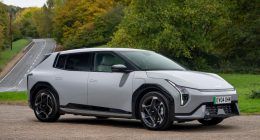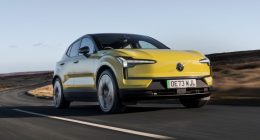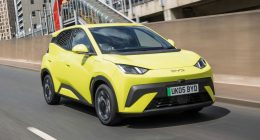Demand for second-hand electrified vehicles shows no sign of slowing down as total sales in the three months to October rose considerably, according to new data.
Latest figures from the Society of Motor Manufacturers and Traders (SMMT) show transactions of used BEVs soared by 56.4% to 14,182 in the last quarter, while the number of PHEVs changing hands grew by 43.3% to 14,990.
Overall, the year-on-year market share of used plug-in vehicles increased by 0.5% to 1.4% – a shift the SMMT attributed to “an ever-growing choice of new zero emission models coming on sale, for both new and used car buyers”.
Despite such impressive numbers, battery vehicles of all kinds continue to be dwarfed by their petrol and diesel counterparts. The two fuels accounted for 96.4% of all second-hand deals in the last quarter – the equivalent to 1,959,955 units – even though demand for both slumped by 6.9% and 7.6% respectively.
Superminis were the most popular body type during Q3. Spearheaded by the Ford Fiesta and Vauxhall Corsa, they accounted for a third of the market (33%).
Black remains the most popular colour choice with 436,511 transactions, followed by silver and blue. Only two colours saw their sales increase during Q3, with orange rising by 3.6% and brown 1.1%.
A total of 2,034,342 vehicles changed hands last quarter, 134,257 fewer than in the same period last year. Figures were strong in the third quarter of 2020, however, as showrooms reopened and lockdown measures were eased which allowed “the market to bounce back strongly”.
Mike Hawes – the Chief Executive of the SMMT – said: “Despite the used car market declining in the third quarter, record sales earlier in the year, particularly in the second quarter, means the market remains up year to date.”
He added: “Given the circumstances with the global pandemic causing a shortage of semiconductors needed to produce new vehicles, undermining the new car market, used transactions were always going to suffer, too.
“This is particularly worrying as fleet renewal – of both new and used – is essential if we are to address air quality and carbon emissions concerns,”









